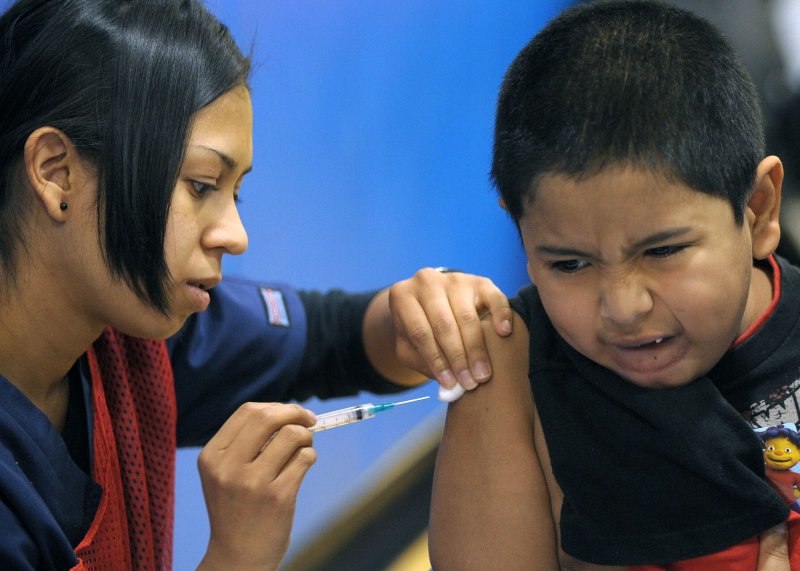ATLANTA, Sept. 15 (UPI) -- The United States experienced a higher than normal number of measles cases this year -- mostly due to philosophical objections to vaccines, researchers say.
Measles elimination -- absence of year-round transmission -- was declared in 2000 in the United States, but measles is imported into the country from countries where it is still common.















